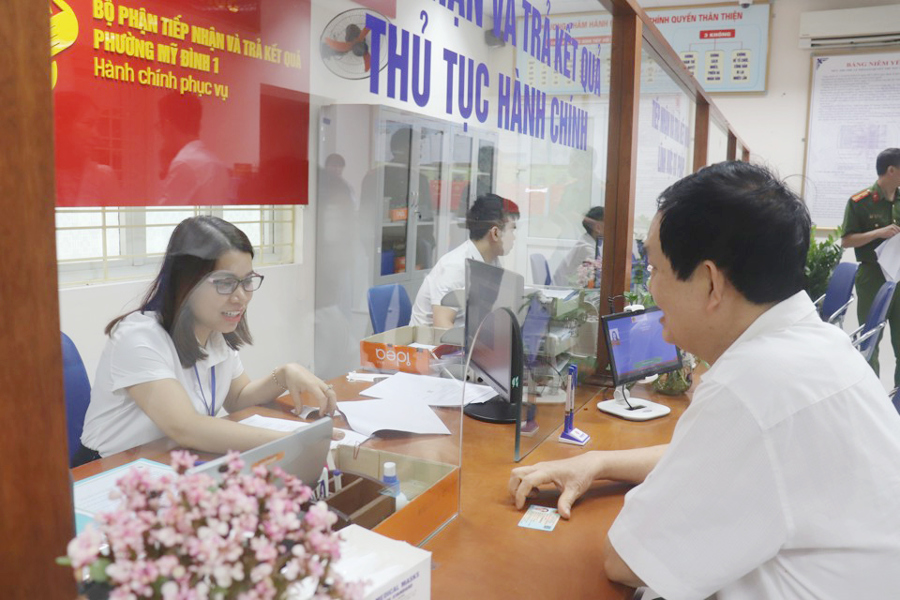PUBLIC SERVICES

The purpose of issuing the Administrative Reform Index is to objectively, comprehensively, and fairly assess public service units' annual administrative reform performance under the Hanoi People's Committee.
Vice Chairman of the Hanoi People’s Committee Ha Minh Hai on October 29 signed Decision No. 5644/QD-UBND, issuing the Administrative Reform Index applicable to public service units under the Hanoi People's Committee for the 2024-2030 period.

Accordingly, the purpose of issuing the Administrative Reform Index is to objectively, comprehensively, and fairly assess the annual administrative reform performance of public service units under the Hanoi People's Committee. This initiative aims to enhance the roles and responsibilities of leaders, officials, and employees in fulfilling the administrative reform efforts of these entities.
The assessment combines quantitative and qualitative evaluations of administrative reform outcomes and their impacts, incorporating both internal and external assessments. Through this process, units can recognize their results, identify limitations, and implement solutions to improve the quality and effectiveness of their annual administrative reform efforts.
Determining the Administrative Reform Index must ensure feasibility, align with the unique characteristics and conditions of public service units, and reflect an objective and fair evaluation of annual performance.
This approach emphasizes greater involvement of individuals and organizations in assessing the administrative reform process of public service units under the Hanoi People's Committee. It aims to create a standardized, unified monitoring and evaluation system that gradually stabilizes across agencies and units in Hanoi.
The Administrative Reform Index is applied to three categories of public service units under the City People’s Committee, which include: schools (11 units); institutes, centers, and investment funds (5 units); and project management boards, newspapers, and broadcasting agencies (6 units).
The final Administrative Reform Index ranking for the 22 units will be arranged in descending order of performance.
The specific process and timeline for evaluation are as follows:
Step 1: Public service units under the City People’s Committee conduct self-assessments based on reform criteria and results. The semi-annual assessment should be completed by July 30 each year, and the annual assessment by November 30.
Step 2: Members of the City Appraisal Council review and assess the first round of evaluations. Semi-annual evaluations are to be completed by August 15, and annual evaluations by December 15.
Step 3: Public service units submit additional explanations and supporting documents as required. This must be completed within three working days of receiving a request from the standing committee.
Step 4: The City Appraisal Council conducts the second round of evaluations. Semi-annual assessments should be completed by August 30, and annual assessments by January 31 of the following year.
Step 5: The City Appraisal Council holds a meeting to finalize the annual Administrative Reform Index for public service units under the City People’s Committee before February 5 of the following year.
Step 6: The results are submitted for City People’s Committee approval and are publicly announced by February 10 of the following year.
The Hanoi People's Committee has assigned the Department of Home Affairs to lead and coordinate with relevant agencies to implement the City’s Decision. Additionally, the Department will research and advise the City People's Committee on adjustments or updates to the Administrative Reform Index as needed during implementation.
Ngoc Mai